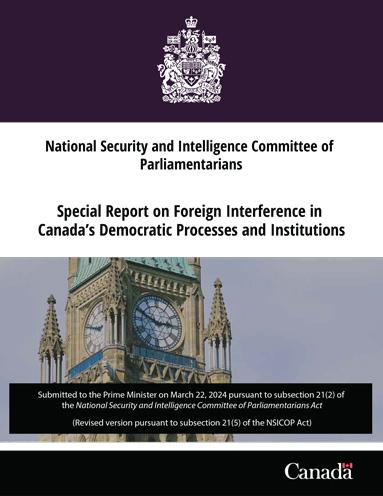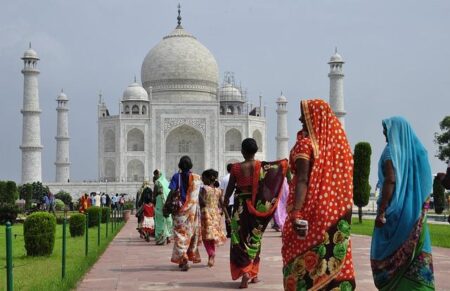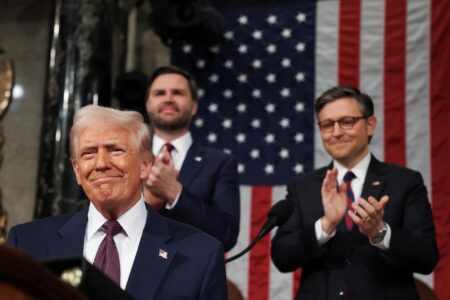Denmark’s Social Democrats have successfully adapted to contemporary challenges by prioritizing pragmatic policies and robust welfare reforms. Their focus on economic responsibility coupled with social equity offers valuable lessons for Germany‚Äôs SPD in revitalizing its platform and appeal.
Browsing: governance
Algeria has called on Spain to rethink its backing of Morocco’s autonomy proposal for Western Sahara. The request reflects ongoing tensions in the region, as Algeria emphasizes the need for a fair and negotiated resolution to the territorial dispute.
In light of escalating U.S. threats, Canada faces a crucial moment to reassess its national security strategy. Experts advocate for integrating non-violent resistance training into defense plans, promoting resilience and civil engagement as vital components of national safety.
Italy’s Prime Minister Giorgia Meloni faces a delicate balancing act as she navigates her allegiance to former President Trump while maintaining her responsibilities to European unity. This dilemma highlights the complexities of national and international politics in a shifting landscape.
In a recent clash of ideals, former President Donald Trump appears to overshadow Argentine libertarian leader Javier Milei in the battle for right-wing populism. Analysts suggest Trump’s robust influence may shape global conservative narratives, potentially sidelining Milei’s unique agenda.
The ongoing delimitation process in India has sparked debate about its impact on regional representation. As North India may gain additional seats, concerns arise in the South about potential underrepresentation, raising questions about equity and resource allocation.
As Javier Milei prepares to govern Argentina, a critical challenge looms: addressing soaring inflation and economic instability. His unconventional policies may spark both hope and skepticism as the nation grapples with its financial future.
Germany is pursuing constitutional amendments to bolster its military readiness amid growing security concerns. This move reflects a shift in defense policy, aiming to enhance the nation’s operational capabilities in response to evolving global threats.
If Canada and Greenland were to become U.S. states, the electoral landscape would shift dramatically. With their combined populations, they could tilt votes in Congress, influence presidential elections, and reshape policies on immigration, healthcare, and climate change.
In a dramatic late-night meeting, a critical 3 a.m. showdown solidified Merz‚Äôs innovative strategy to revitalize Germany’s economy. Key stakeholders rallied behind the plan, marking a pivotal moment for the nation’s financial future amid escalating challenges.
In a bold move, German leader Merz is pushing to enshrine economic policies into the constitution, raising concerns about potential long-term implications for Germany’s financial stability. Critics argue this approach could solidify a path toward economic decline.
Former Brazilian President Lula da Silva, once a champion of the working class, faces growing criticism and disillusionment among his base amid rising economic challenges and unfulfilled promises. This shift raises questions about his political viability.
The Tony Blair Institute for Global Change emphasizes the need for a coordinated effort across all government sectors to harness the UK’s AI potential. A whole-of-government approach is crucial for fostering innovation, competitiveness, and ethical standards in AI development.
Tilman Fertitta, the billionaire businessman and owner of the Houston Rockets, may face a significant pivot if confirmed as the U.S. ambassador to Italy. Speculation surrounds whether he will step back from his extensive business empire to focus on diplomatic duties.
Reform UK has reported lawmaker Andrew Lowe to the police following allegations of making threats against the party’s chairman. The move underscores rising tensions within the political landscape, prompting scrutiny over intra-party conduct.
In a decisive victory, Mark Carney, newly elected Prime Minister of Canada, emphasized national sovereignty, stating, “Canada will never ever be part of America.” His remarks resonate amid ongoing debates about Canadian identity and independence in a globalized world.
In his latest piece for The Guardian, Paul Daley critiques Australia’s unwavering sycophancy towards Donald Trump, arguing that this blind allegiance threatens the nation‚Äôs diplomatic integrity and moral standing on the global stage.
German parties have reached a consensus to relax fiscal rules, enabling significant investments in military and economic reforms. This shift aims to fortify national defense and stimulate economic growth, reflecting a strategic response to emerging global challenges.
India is grappling with a political rift as Prime Minister Modi’s proposal to redraw electoral constituencies faces backlash, particularly from the southern states. Critics argue the plan threatens regional representation and exacerbates existing disparities.
Australia’s Foreign Minister has voiced concerns that Donald Trump‚Äôs second term is proving to be even more disruptive than his first. This assessment reflects growing international apprehension over Trump’s evolving foreign policy and domestic decisions.




















